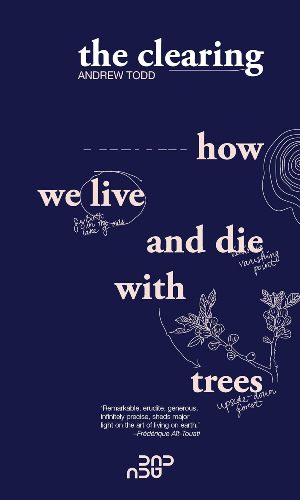 |
How We Live And Die With Trees
Andrew Todd
English
Paperback
120 x 197 mm
Editore: Turnaround
Argomento: Literature
ISBN / Barcode: 9788797426210
Euro € 28.00

Trees and forests belong on earth, we do not. We are their guests, dependent on their oxygen and their materials for our existence. We are bad guests, misunderstanding and mistreating our hosts. We are reaching the point where this mistreatment will undermind our own capacity to live. Is it too late to become good wood-guests? If not, how? What new forms of awareness must we develop? This book book tries to answer these questions.
Author Andrew Todd is an architect, winner of the WAN Award for the best wooden building in the world for the Hardelot Elizabethan Theatre. Anchored by his own roots making plant-based buildings, and by the example of his forest manager father, he takes us on a journey which looks at trees and forests from a kaleidoscopic range of viewpoints: as solid matter for building shelter, as ongoing habitat for timeless tribes, as the seat of Western origin myths.
The Clearing takes us to the contested, multi-layered forests of Old and New England, to the tropical rain forest (a scene of our civilisational endgame), to ultra-modern (yet animist) Japan, to harmonious and innocative wood villages in Austria, and to the terraformed, zombie-forested Ascension Island in the middle of the Atlantic. On the way we encounter Donald Trump, Queen Elizabeth II, Leonardo da Vinci, cutting-edge contemporary philosophers closely concerned with the forest, Charles Darwin, invisible Shinto shrines, brilliant female pygmy architects, Davy Crockett, and a fig tree and bonsai pine carrying forward the author's own family story, framed in this book by two deaths.
The forest is everything, a totality in which we need to find ourselves, both individually and as a civilisation, against a background of loss. This book is a quest, a possible cross-section through this totality, using the pain of loss to heighten our awareness. It might orient us in forging a new relationship with our woody hosts.
